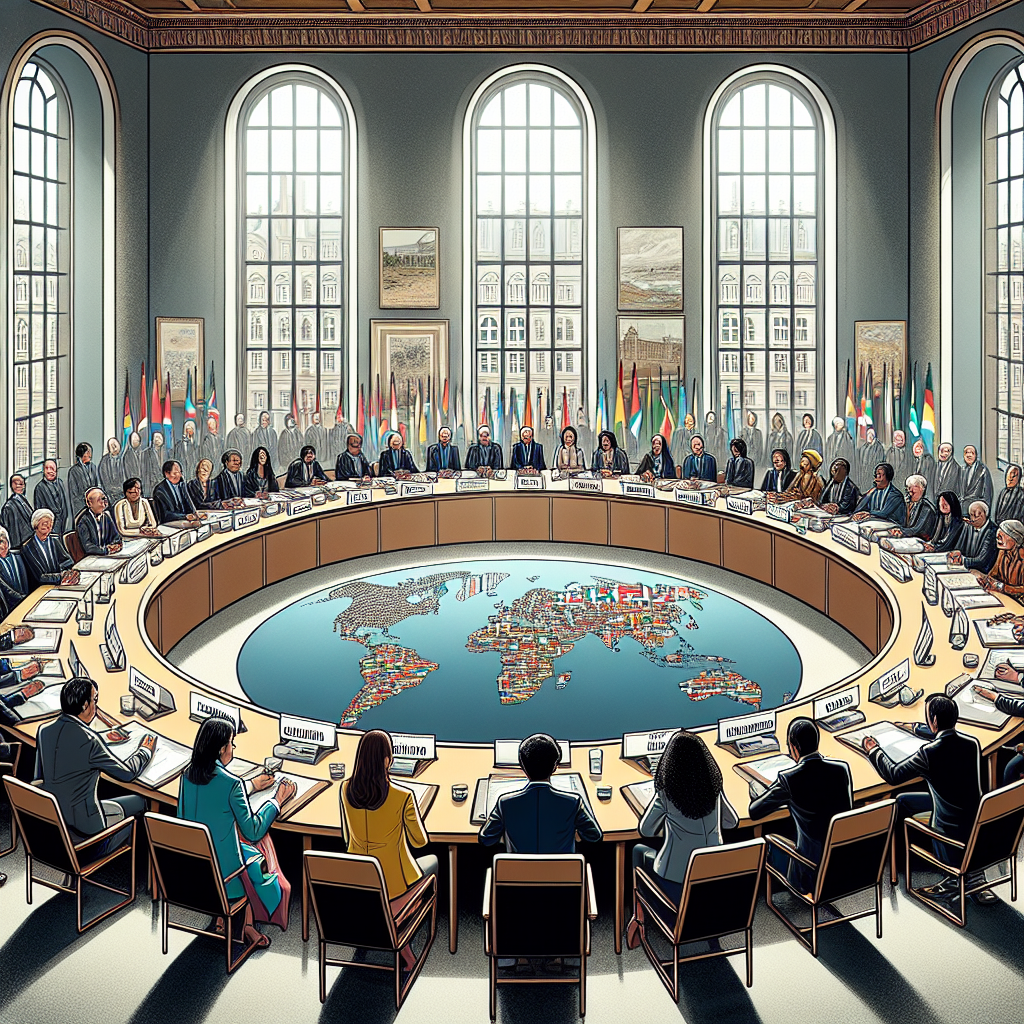UNESCO Hosts International Conference on Documentary Heritage to Strengthen Global Cooperation and Preserve Collective Memory
The conference’s keynote speeches and panel discussions highlighted existing instruments for safeguarding documentary heritage and facilitating global access.

The International Conference of the Memory of the World (MoW) Programme and the 4th Global Policy Forum convened at UNESCO Headquarters in Paris from 28-29 October 2024 to explore the role of documentary heritage in fostering global understanding and cooperation. The event, supported by the Government of Japan, brought together government ministers, leading international experts, and representatives from memory institutions worldwide to address the pressing challenges faced by the world’s irreplaceable documentary collections.
Under the theme “Memory of the World: At the Crossroads of International Understanding and Cooperation,” the forum explored how the preservation of documentary heritage can serve as a powerful tool for social good, cultural identity, and a deeper understanding of human history.
Documentary heritage, including manuscripts, maps, photographs, and other irreplaceable documents, is under significant threat due to armed conflicts, climate change, and lack of resources. In his opening remarks, Tawfik Jelassi, UNESCO Assistant Director-General for Communication and Information, highlighted alarming statistics, noting that 80% of audiovisual collections face inadequate safeguarding, and 60% of memory institutions lack the funding needed to preserve their holdings.
Despite these challenges, Jelassi remained hopeful, emphasizing the importance of the gathering. He described the 590 participants, including 325 attending in-person, as a sign of global commitment to preserving documentary heritage and advancing international cooperation. Jelassi noted that the conference’s broad participation demonstrated the world’s shared recognition of the importance of collective memory in shaping cultural identity and the historical narrative.
Key Instruments for Preservation and Access
The conference’s keynote speeches and panel discussions highlighted existing instruments for safeguarding documentary heritage and facilitating global access. Among the resources discussed were the MoW International Register, which has inscribed 496 items and collections to date, and the establishment of nearly 100 MoW National Committees by UNESCO Member States. These efforts are guided by the 2015 Recommendation on the preservation and access to documentary heritage, including in digital formats.
While the MoW Programme model was praised as effective, the need for more standardized practices and deeper public awareness, especially among young people, was emphasized. Panelists agreed that further efforts are needed to bridge gaps at the national, regional, and international levels.
Harnessing Technology for Preservation
A key focus of the conference was the role of new technologies in addressing the challenges of preservation and access. Tawfik Jelassi noted the potential of artificial intelligence (AI) in both preserving and reviving documentary heritage. He underscored UNESCO's support for the ethical use of AI, which could be harnessed to uncover forgotten stories and ensure that our collective memory remains relevant to contemporary societal needs. Jelassi stressed that AI could play a pivotal role in ensuring that under-represented voices are included in the historical record.
A Shared Global Commitment for the Future
The conference concluded with a call for public-private partnerships to address funding and technological gaps in heritage preservation. Discussions emphasized that collaboration across borders is essential to tackle the universal challenges of preserving and accessing documentary heritage.
The participants recognized that achieving a more cohesive, standardized framework for safeguarding documentary heritage will require a global coalition, including governments, civil society, international organizations, and private sector players. The shared efforts of all sectors are essential to respond to the growing threats to documentary collections and to ensure their preservation for future generations.
In closing, the conference reaffirmed UNESCO’s commitment to building international frameworks and promoting innovative solutions to safeguard the world’s documentary heritage. Through collective action, the conference underscored the importance of collaborative efforts in shaping a shared global memory that can transcend borders and help foster a more inclusive, informed, and interconnected world.
- READ MORE ON:
- Global Policy Forum










